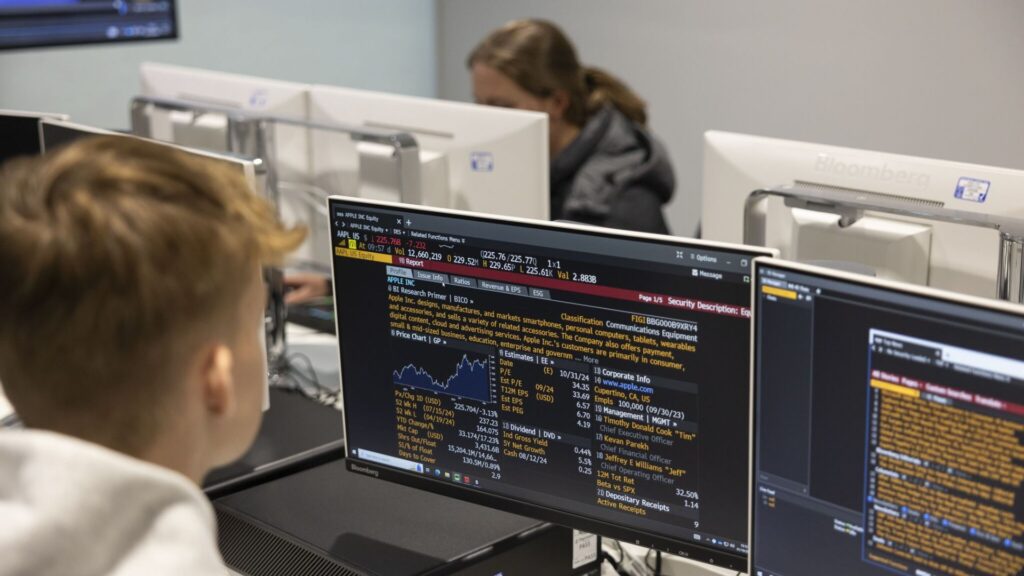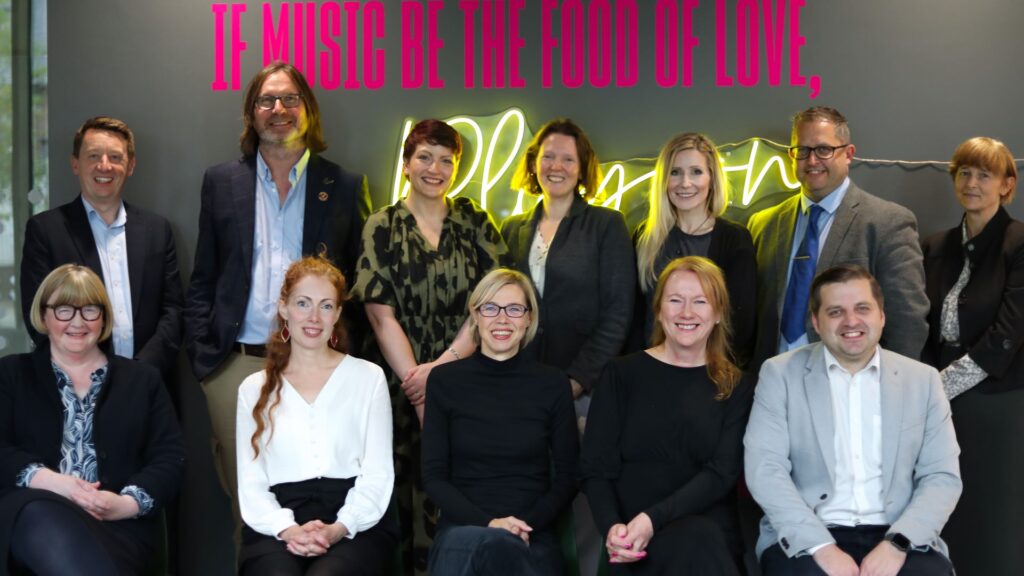For film and television student Adam Ellison (pictured below), access to the audio-visual kit he needs is vital in order to realise the ideas whirling around his head, and to feel at home in the studio environment.
Adam began with the basics, like all our BA (Hons) Television students, according to Programme Leader Kevin Thompson:
Students get training on all camera, audio recording, and lighting equipment, as well as software applications, that are needed for each module. When a student has had the initial training, they’re able to book equipment out from the media store. We encourage students to practice regularly with equipment to develop confidence and skills as practice is a key element of this process.”
Adam backs this up:
Access to such expensive and hi-tech equipment is difficult outside of a university setting – I felt lucky to be trained to operate it. And access to the equipment is as simple and easy as booking the studio on the Edge Hill website. By the end of our training session, we all had the ability to focus, zoom, manoeuvre and set up the cameras. The trickiest part is the movement of the cameras themselves because they’re much larger than what I’m used to.”
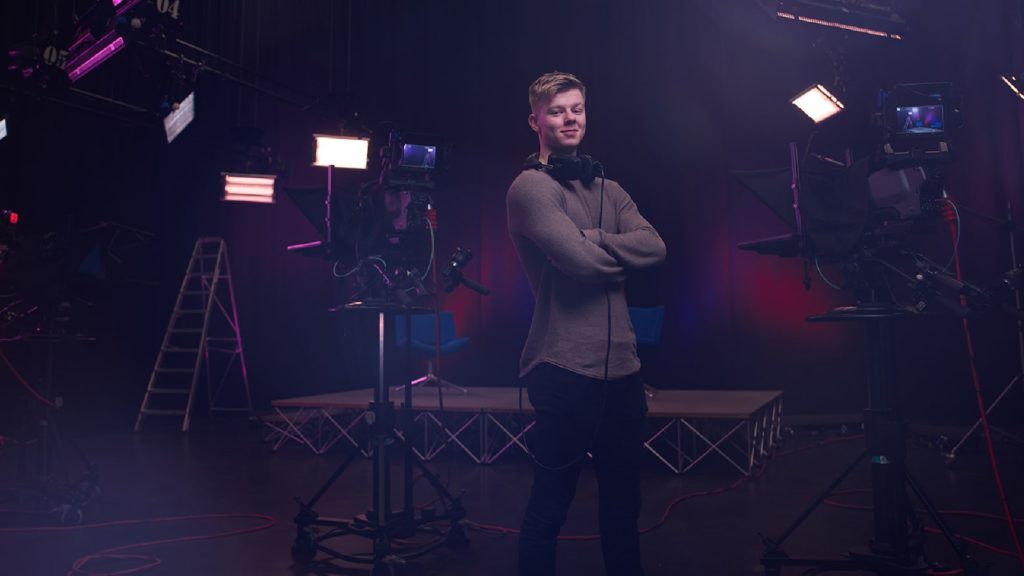
Kevin, whose tv and theatre production work includes projects with the BBC and S4C, emphasises the importance of being able to try your hand at different things, not least because it gives students options:
“Our students develop skills across the areas of production so they can decide what parts of the industry they’re best suited to. The practical element of the course is essential. It allows students to demonstrate key skills and creativity, and apply research techniques to production-related activities. It makes up a significant part of our students’ coursework.”
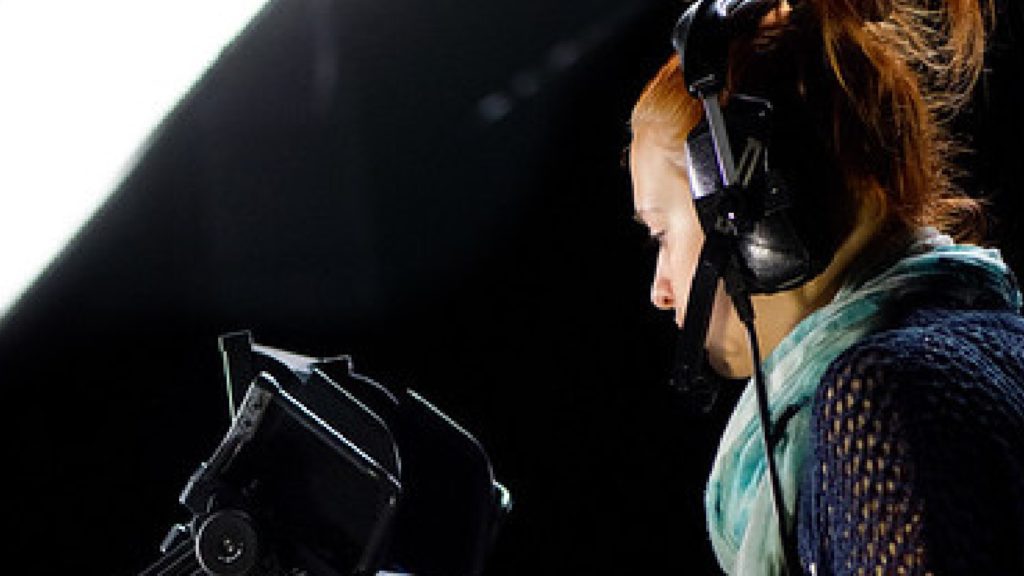
And practical coursework comes in all shapes and sizes, very much directed by the students’ own interests, focusing on any part of the production process: writing scripts; planning for a range of media productions; content creation with recording equipment and software applications; creating content for group-based productions, on location and in the studio; working on their own ideas, with clients, and on commissions.
With ambitions to become an editor in the industry, Adam has already taken advantage of his training, and become very familiar with our industry-standard environment:
With a group of other students, I made a parody of a children’s television show in the studio. It took a lot of planning to have the studio set up exactly how we needed it, but overall it was pretty easy. All we needed to do was communicate clearly and follow the shooting script and schedule. We were all pleased with the outcome.”
To see how much progress Adam, and all our students, make in their short time here is worth every penny of the investment in the University’s Creative Arts provision. Access to great resources, training and career opportunities gives our Film, Media and Television students the freedom and confidence to test their creativity in a safe space. And once rehearsals are over, you’re ready to start scripting your own story.
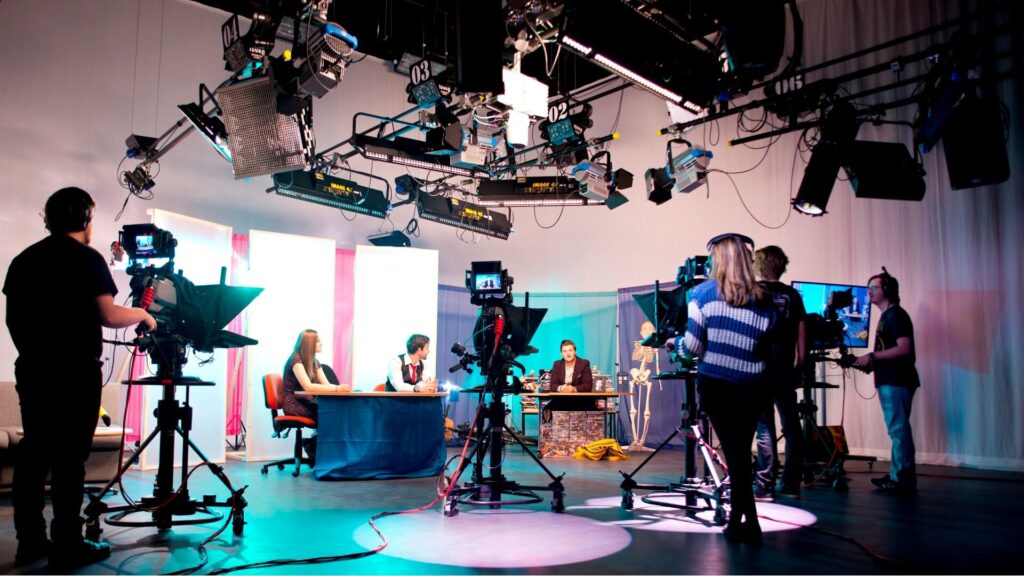
May 18, 2022
